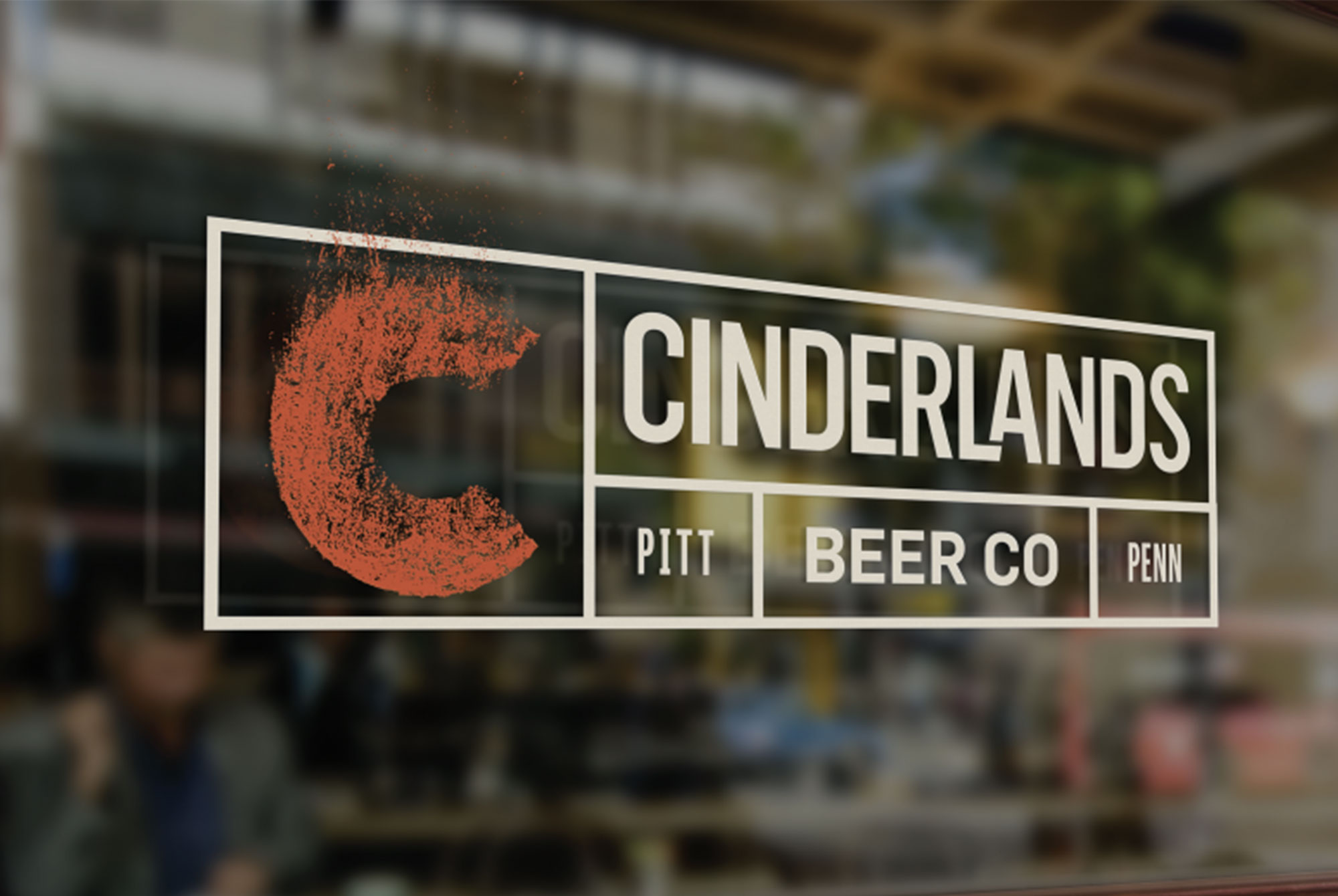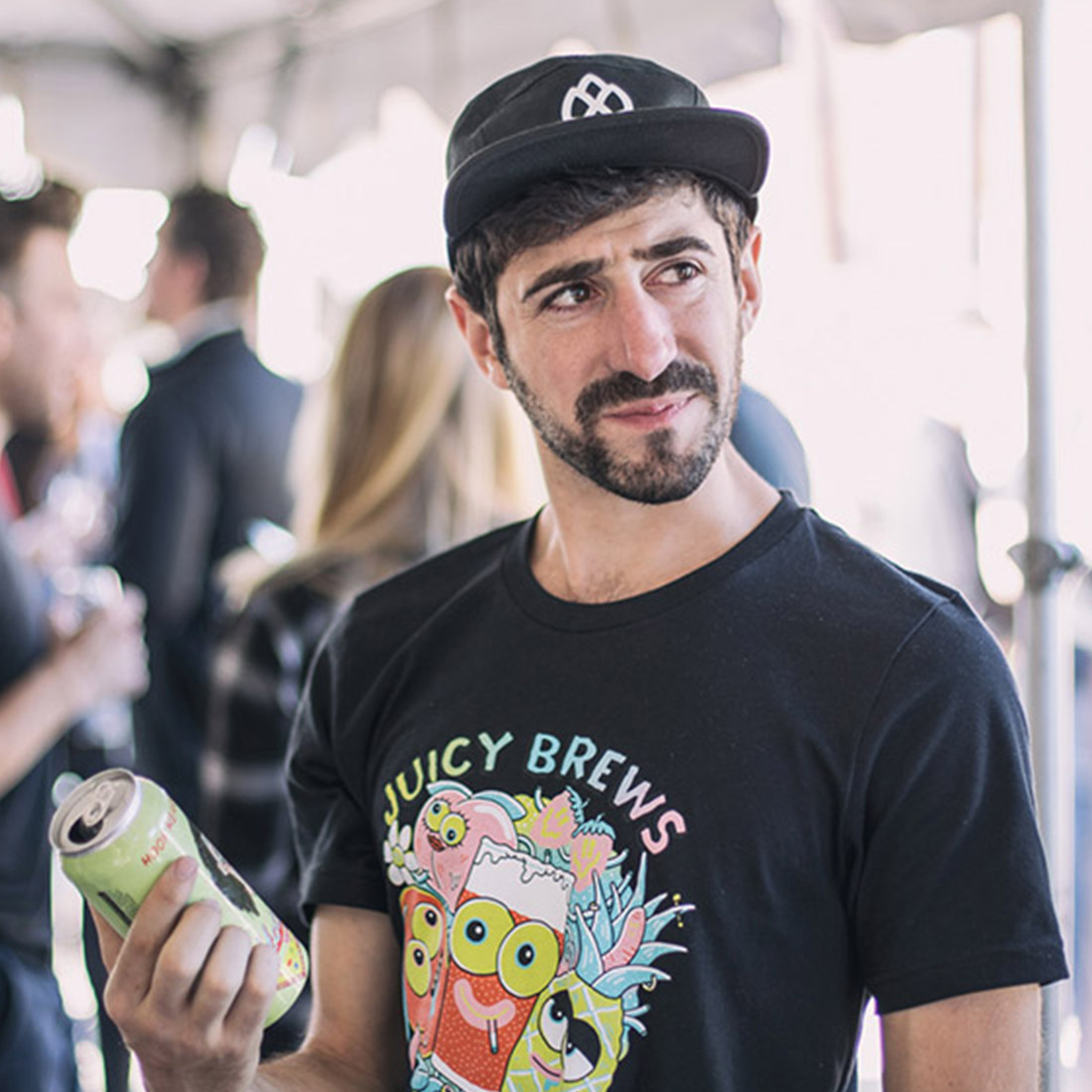Shop
A Pint with the Co-Founder of Cinderlands Beer Co.
Chicago-born Paul Schneider leaves Solemn Oath Brewery to start a new venture in Pittsburgh.
Before he was a brewer, Paul Schneider was a homebrewer, public school teacher, and blogger. Then Solemn Oath Brewery started in Chicago, and Schneider joined up.
Several years and many awards later, the Chicago-born brewer is helping co-found his own brewpub… in Pittsburgh. The laid-back Steel City beer scene presents a compelling escape from the competition of Chicago, and Schneider is looking to fill a niche in a city with a surprising dearth of brewpubs. Just as Solemn Oath gave him a chance to shine, he’s hired local talent without a ton of industry background; one of his first hires was Fox Chapel-born Will Tippins, who went to Allegheny College and served in the Marines before returning to Pittsburgh.
When Cinderlands Beer Co. opens on December 2nd, it’ll be the newest addition to an all-star lineup of breweries in Pittsburgh. We sat down with Schneider to talk about writing, beers, and brewing in the City of Champions.
Kenny Gould: How did you get started?
Paul Schneider I kind of trace it all back to coming home to Chicago for Thanksgiving when I was in college and going to the Goose Island Brewpub. I’d been familiar with their 312, which was common around the town. My friend chatted to the bartender and came back to the group with this chalice of Matilda. That first taste really rocked my world.
KG: You got bit by the beer bug.
PS: It made me wonder what I was tasting and how it was made. I went back and the rest of my senior year of college and in grad school, I tasted all the Belgian beer I could find. I discovered that I really loved Trappist beers, saisons, and Belgian strong golden, witbier, and eventually gueuze and Flanders ale. From there, I started drinking everything I could get my hands on, from German beers and eventually American beer. I’m a pretty serious nerd, so I also got my hands on books and started reading as much as I could. Charlie Papazian and Randy Mosher’s Tasting Beer were my windows into the world of beer.
I remember thinking, this is way too complex, I could never grasp chemistry or biochemistry.
From there, I homebrewed in grad school with a buddy of mine. I remember picking up Designing Great Beers by Ray Daniels. I remember thinking, this is way too complex, I could never grasp chemistry or biochemistry. It seemed like a totally different world, very complex. Now I look back on that and it’s funny to think about. The amount of learning I’ve done since getting into the industry has been well above.
KG: When did you decide that you wanted to brew full time?
PS: It was pretty quick once I decided to start homebrewing. I moved back to Chicago with that buddy of mine. His father in law, he’d owned a homebrew shop in the Chicago suburbs in the 90s. He was our homebrew swami; he showed us everything he knew. But that stopped at partial mash—he’d never done full grain. But my thirst for knowledge led me to figure out what was going on in a mash.
KG: So then you really caught the bug.
PS: We turned our dining room into a bar, put in a temperature controlled kegerator. We’d have three or four batches going at any given time. We brewed a lot and learned a lot. I was a high school teacher at the time, coaching soccer. The job was demanding, because I was a non-tenured teacher in a demanding district. I was burning the candle at both ends. I liked my job but I loved beer. I wanted to see if I could turn that into a career. I didn’t know how to do that. I didn’t have any skills other than my nascent homebrewing.
KG: We know this story has a happy ending.
PS: I knew I could write so in January of 2011, I started a beer blog that covered the Chicago craft beer scene. I figured that would be a way for me to use my capacity as a writer to fill a gap in information. No one was writing anything at the time.
KG: Did you have any concerns about teaching public school and running a beer blog?
PS: No, not at all. My name was definitely attached to the blog. I wasn’t trying to be secretive. Appreciation of a well-made beer from an American company isn’t the same as the binge drinking lifestyle that would worry the school district.
KG: How’d you transition from a blogger to a brewer?
I told myself, within 5 years, I’d like to have explored a couple opportunities to get into the industry.
PS: I told myself, within 5 years, I’d like to have explored a couple opportunities to get into the industry. The blog took off. I ended up landing interviews with the Goose Island team after the acquisition. So I interviewed Brett Porter, who was the head brewer at the time. That was a huge story that I published with the Chicagoist. I ended up writing a beer beat for the Chicagoist. Response was great. People in the community started to know who I was. I wanted people to know that I was knowledgeable and interested. I figured that through the natural course of developing relationships, I’d eventually find someone who had a job that was a good fit for me.
KG: And that’s what happened?
PS: That’s what happened. I went to interview the guys at Solemn Oath Brewery; I’d heard they were planning a Belgian-themed brewery in the suburbs. We really clicked. Tim Marshall was the head brewer, John and Joe Barley were managing partners. It was about January or February of 2012 that I interviewed those guys. They’d gotten into an industrial space but there wasn’t anything there yet. After a few months, they asked me if I wanted to come in and start helping out on the side. On the beer side, I started washing kegs, milling kegs, the repetitive tasks that are essential to brewery operations. On the business, I was working with John running the social media and website, writing blog posts, the newsletter. It started taking up a good deal of time and that summer they asked me if I wanted to come on full time.
KG: And that was…?
PS: Eighteen months after I told myself I wanted to be in the industry. I called my department head and let her know I wasn’t coming back. It was a great feeling.
KG: But the story doesn’t end there.
PS: It was a great ride at Solemn Oath. I worked there for about five and a half years. I actually met my wife there. She was working in the tap room. We met September 2012 and we just got married last September.
KG: Congratulations! This is the part where you come to Pittsburgh, right?
PS: My dad works in Pittsburgh — he lives outside of Chicago but his company is here. A business acquaintance of his was opening a brewery here. I had initially talked to him when he was thinking of putting this project together, because he wanted to pick my brain about the industry and get feedback. I gave him my thoughts on what he was doing and where I thought he might be able to go. I didn’t hear from him for maybe a year. The next time I did, he was closer to bringing the plans together and was looking for a head brewer for Cinderlands Beer Co. My fiancé at the time (now my wife) and I came out here and checked out the spaces and we fell in love.
KG: It’s easy to do. (Editor’s Note: Kenny Gould, Interviewer and Editor in Chief of Hop Culture, is from Pittsburgh)
PS: We said we’d come check it out, but neither one of us expected to move here. Pittsburgh wasn’t on our radar as a place to go. In our minds, if we made a move, it would’ve been to the mountains. My wife and I both love hiking, backpacking. We’d been eyeing the Pacific Northwest or the Rockies. But we came out here and saw what the brewery was going to be and the opportunity to come here and make beer in this city was amazing. In Chicago, it’s hard to do something to satisfy a need that’s not there. You have to go really niche to do something new or interesting. Pittsburgh is on its way there, and that’s what excites me. The beer drinkers here like interesting things, they’ve been traveling and drinking but it seems like the demand is a lot higher than the supply.
KG: I’d say you’re right about that.
PS: The other thing I loved about Pittsburgh was how many young people are making great food and beverages. It made me excited to come make beer here. I think it’s a super exciting time with a lot of opportunity. The Strip District reminds me of the West Loop in Chicago before the restaurant craze hit. That’s now on the national radar. And Lawrenceville feels a lot like Logan Square, a neighborhood that’s in transition toward a great food and beverage culture. I love Pittsburgh! On the corner of our block I can get handmade gyros, Neapolitan pizzas, and get a flat fixed on my bike.
KG: What type of beer will you be bringing into Cinderlands?
PS: I’m happy to try and bring beer here that people are looking for but can’t get enough of. I also want to turn people onto beer here that I like making that might not be on the radar.
KG: Can you give me an example?
PS: Well, I’m not saying I’m bringing anything that hasn’t been done before, but I want to make beer that people are excited about already. Pales, hop forward, double ipas. Pale easy drinking lagers and hybrid beers. Pilsner, kolsch, helles, cream ale. And then stouts of all varieties. We’ll make a beer that’ll be similar to the coffee milk stout with sweet orange peel that I made at Solemn Oath. We’ll also rotate through different treatments of those beers. Those are the kind of beers that I think people will be looking for and expecting, and then I want to bring in stuff that I find interesting and that’s tasty for me, like coffee and tea beers. I’ve had a lot of experience and success with making beer with coffee and tea across a wide range of styles. So not just porter or stout, but witbier and kolsch as well as hop forward beer like IPAs and double IPAs, and even Belgian and German styles like dunkel and Belgian dubbel. I really want to push that and surprise people who might have different expectations. I think there’s a lot of room for exploration.
KG: Any sours?
PS: I want to do two different kinds of kettle sour beers. The first is a line of kettle sour Berliner Weiss with refermentation on fruit puree. Our first one is passionfruit; we’ll rotate through different fruit over the year. Our next one will be plum. I love tart, refreshing beers with a pronounced, grainy finish, and that’s what I’m looking for with this style.
The second piece of that is kettle soured farmhouse beers. I love saison, it’s my favorite style. Tartness with saison yeast and new world hops. It’s a magical combination, especially when you round it out with some rustic grains like flaked wheat, spelt malt, things like that. You end up with perceived malt character even though the beer finishes dry.
KG: What else does the future hold for Cinderlands?
PS: We’re putting a brewery into the old Spaghetti Warehouse building in the Strip District. That’s project still a long ways out, so I want to keep the focus on Lawrenceville. The real goal for us here is to get this place off the ground and make really good beer and food while we get that second location open.
KG: Food. We haven’t even talked about that yet.
PS: We’ve got an awesome food menu here. It’ll be a full menu focused on small shared plates and sandwiches. We’ll have some Pittsburgh staples like haluksi, kielbasa, and pierogis. The rest of the menu is British Colonial-inspired pub food. There’s a great falafel dish that comes with Indian flatbread and paneer. We have fried smelt and chips. Our chef is Joe Kiefer; he comes from Meat and Potatoes.




